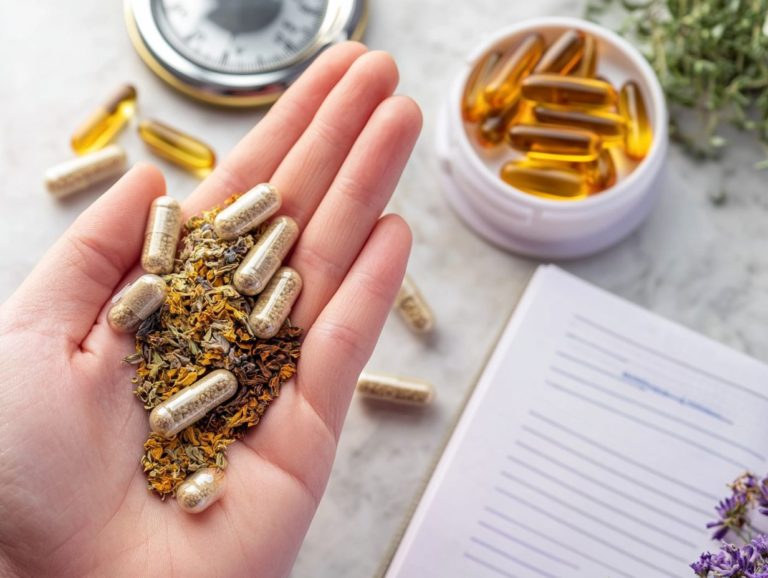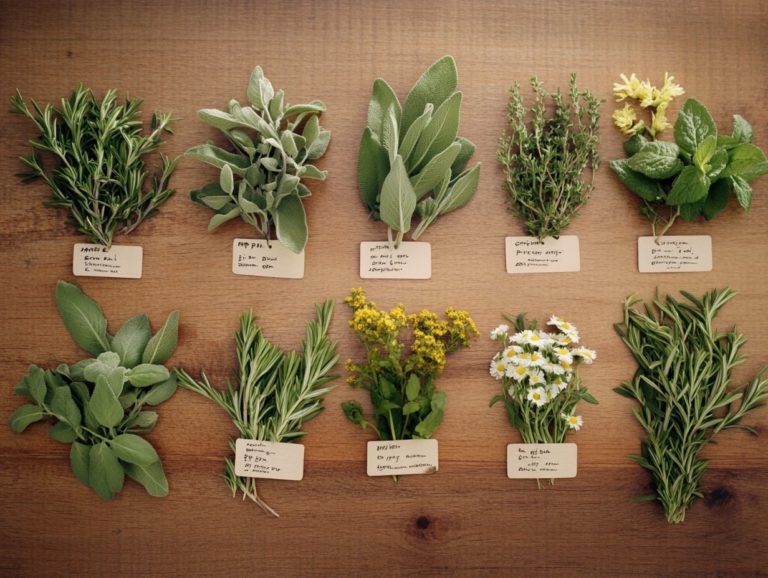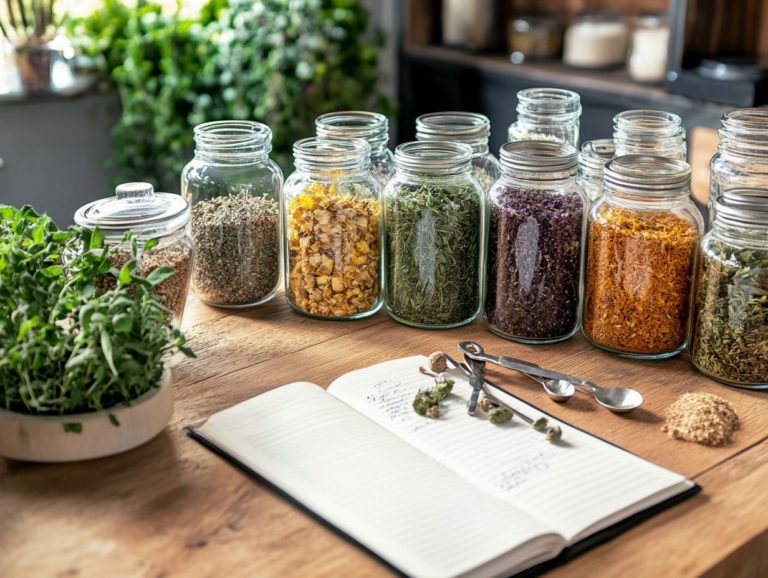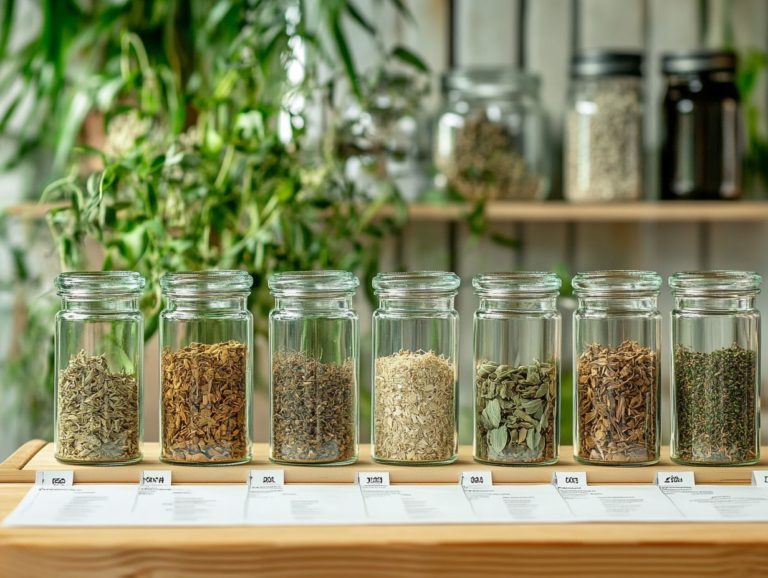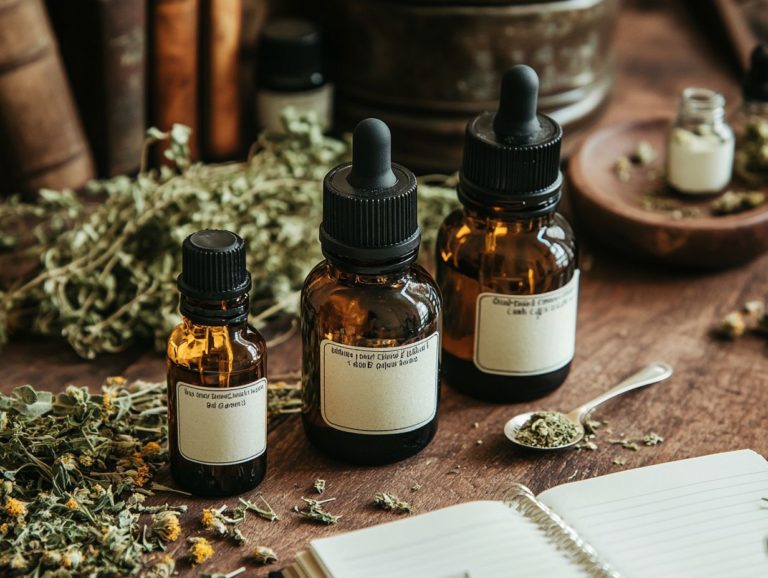Herbal Dosage: When to Consult a Professional
Herbal remedies have become increasingly popular as natural alternatives for a range of health concerns, but grasping the appropriate dosage is essential for both safety and effectiveness.
This article delves into the intricacies of herbal dosage, underscoring its importance and when to seek professional guidance. It outlines potential red flags to consider, the advantages of consulting an expert, and the personal factors that can shape your ideal dosage.
Join us as we explore herbal medicine together to discover the perfect balance for your health.
Contents
- Key Takeaways:
- Understanding Herbal Dosage
- When to Consult a Professional
- Factors Affecting Herbal Dosage
- Finding the Right Dosage for You
- Experimentation and Adjustments
- Frequently Asked Questions
- What is the importance of consulting a professional for herbal dosage?
- When should I consult a professional for herbal dosage?
- What are the risks of not consulting a professional for herbal dosage?
- How can a professional determine the right herbal dosage for me?
- What types of professionals should I consult for herbal dosage?
- What are some potential dangers of self-medicating with herbal remedies?
Key Takeaways:
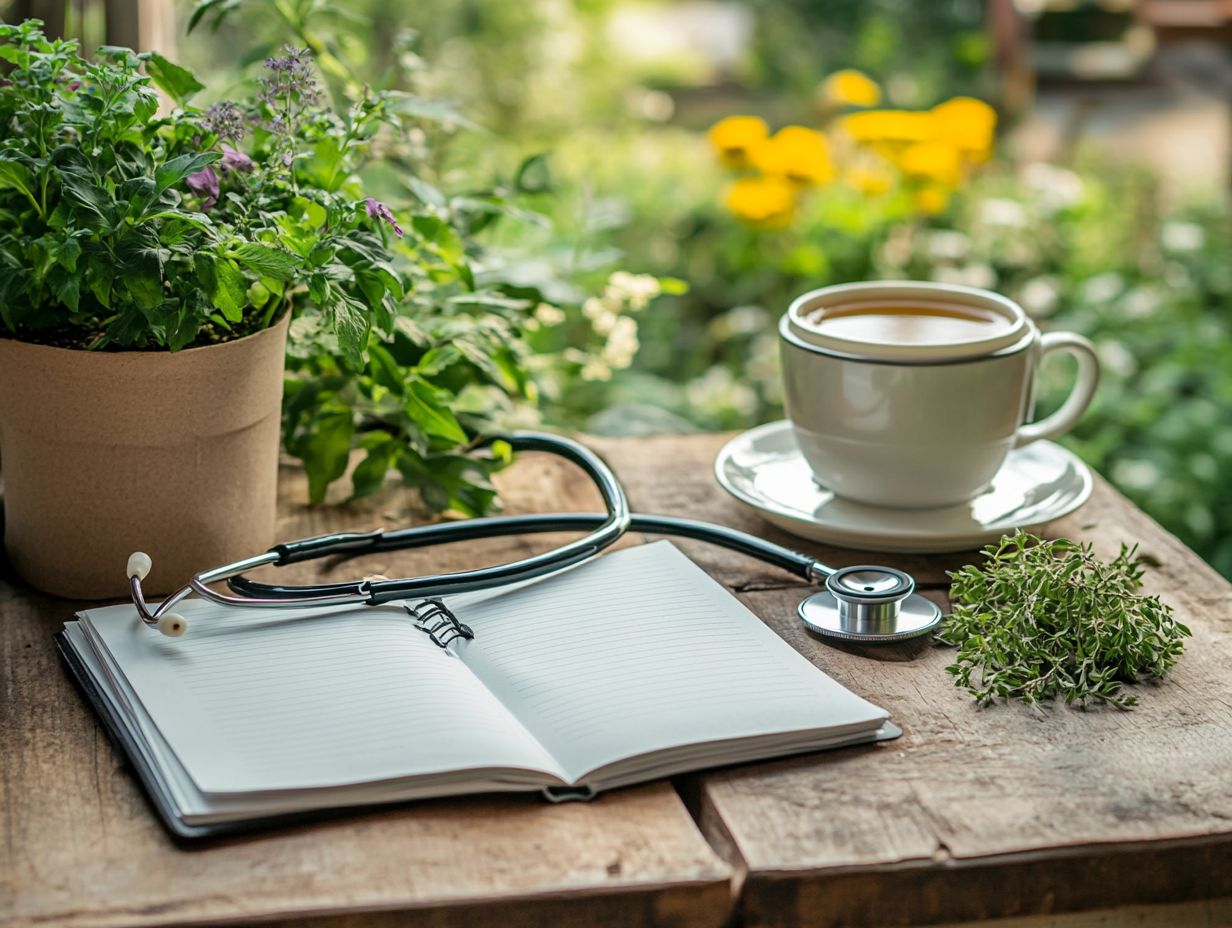
- Always consult a professional regarding herbal dosage to ensure safe and effective use.
- Individual differences and health conditions can significantly impact herbal dosage, making professional guidance essential.
- Experimentation and adjustments may be necessary to find the right herbal dosage for your specific needs and body.
Understanding Herbal Dosage
Understanding herbal dosage is essential for anyone contemplating the use of herbal supplements, as it plays a significant role in the effectiveness and safety of these natural products.
Remedies such as echinacea and St. John’s wort can provide a range of health benefits, but their efficacy often depends on the correct dosage and timing.
The lack of strict FDA regulation can make safety uncertain, underscoring the importance of being aware of potential risks, ensuring proper product testing, and consulting a healthcare provider before use.
What is Herbal Dosage?
Herbal dosage pertains to the precise quantity and frequency of herbal products you should consume to achieve your desired health outcomes safely and effectively.
Determining the right dosage can be quite intricate, as it varies significantly among different medicinal herbs and their forms, whether they are teas, tinctures, or capsules. For pregnant women, understanding the appropriate amount is crucial, so referring to herbal dosage guidelines can be beneficial. Factors influencing your herbal dosage include your age, weight, overall health, and the specific health issues you are addressing.
It s essential to grasp the importance of adhering to recommended dosages; exceeding them could lead to adverse effects, while under-dosing might not provide the benefits you seek.
This helps you use herbal remedies effectively and harness the full potential of these natural products.
Why is it Important?
Understanding the importance of proper herbal dosage is essential for ensuring your safety, minimizing potential risks, and avoiding negative effects when mixed with other medications when you take herbal supplements alongside conventional medicines.
Getting the dosage right can truly make a world of difference in how these natural remedies perform. Take ginkgo biloba, for example; it’s often celebrated for its memory-enhancing properties, but overdoing it can heighten the risk of bleeding, particularly for those on blood thinners. Similarly, while garlic boasts cardiovascular benefits, excessive amounts can lead to gastrointestinal issues or interfere with medications for hypertension. For accurate guidance, refer to the dosage recommendations for popular herbs.
By paying careful attention to accurate dosing, you can significantly decrease the likelihood of unwanted side effects while still enjoying the benefits of herbal supplements. For more information, refer to herbal safety.
When to Consult a Professional
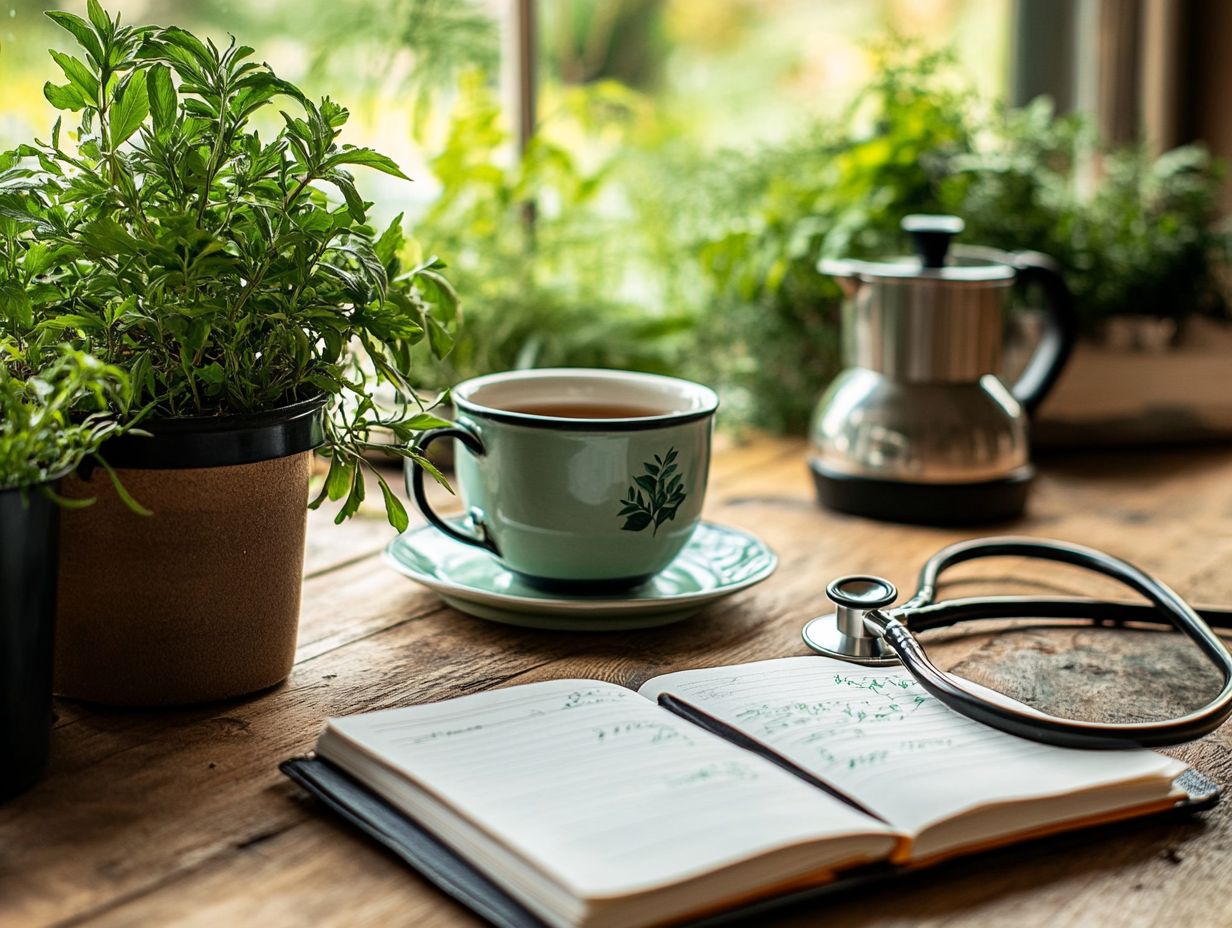
Consulting a healthcare provider or a doctor who combines traditional and alternative treatments is crucial when you’re contemplating herbal supplements. This is particularly important if you have existing health conditions or are currently on other medications.
Professional guidance will not only offer insights into safe dosages but also highlight any potential interactions. Additionally, seeking the expertise of herbalist services can prove invaluable in customizing dietary recommendations that align with your unique needs and existing clinical trials. For more detailed information, consider exploring herbal remedies: safe dosage for adults and children.
Red Flags to Look Out For
Certain red flags should prompt you to consult a healthcare provider before diving into herbal supplements. These include unexpected side effects, pre-existing health conditions, and potential drug interactions.
If you feel dizzy or experience palpitations after sipping chamomile tea, it s a cause for concern. Chamomile can amplify the effects of blood thinners, heightening the risk of excessive bleeding. Similarly, ginger supplements, celebrated for their anti-inflammatory benefits, may not work well with heart medications, potentially leading to complications like irregular heart rhythms.
If you have underlying conditions such as hypertension, tread carefully, as these herbs may impact your blood pressure.
Before embracing these natural remedies, it s vital to check your health status and current medication regimen to avoid any adverse effects.
Benefits of Seeking Professional Guidance
Consulting a professional for herbal supplements can significantly enhance your safety as a patient. This guidance ensures you receive tailored advice on the appropriate dosage and potential benefits of dietary supplements.
By working with experienced herbalists, you gain access to personalized recommendations that consider your unique health conditions, lifestyle factors, and dietary preferences. A qualified herbalist will assess your existing medications and overall wellness to craft a customized herbal regimen just for you, while also following safety tips for creating herbal remedies.
This overall method maximizes the effectiveness of herbal products and allows for monitoring your health outcomes over time. With ongoing consultations, you’ll develop a deeper understanding of the role of body weight in herbal dosage, ensuring a safer and more impactful herbal experience.
Factors Affecting Herbal Dosage
A variety of factors influences herbal dosage, including age, weight, and metabolism. Specific health conditions can either enhance or reduce the effectiveness of herbal ingredients, making it essential to consider these variables.
Individual Differences and Health Conditions
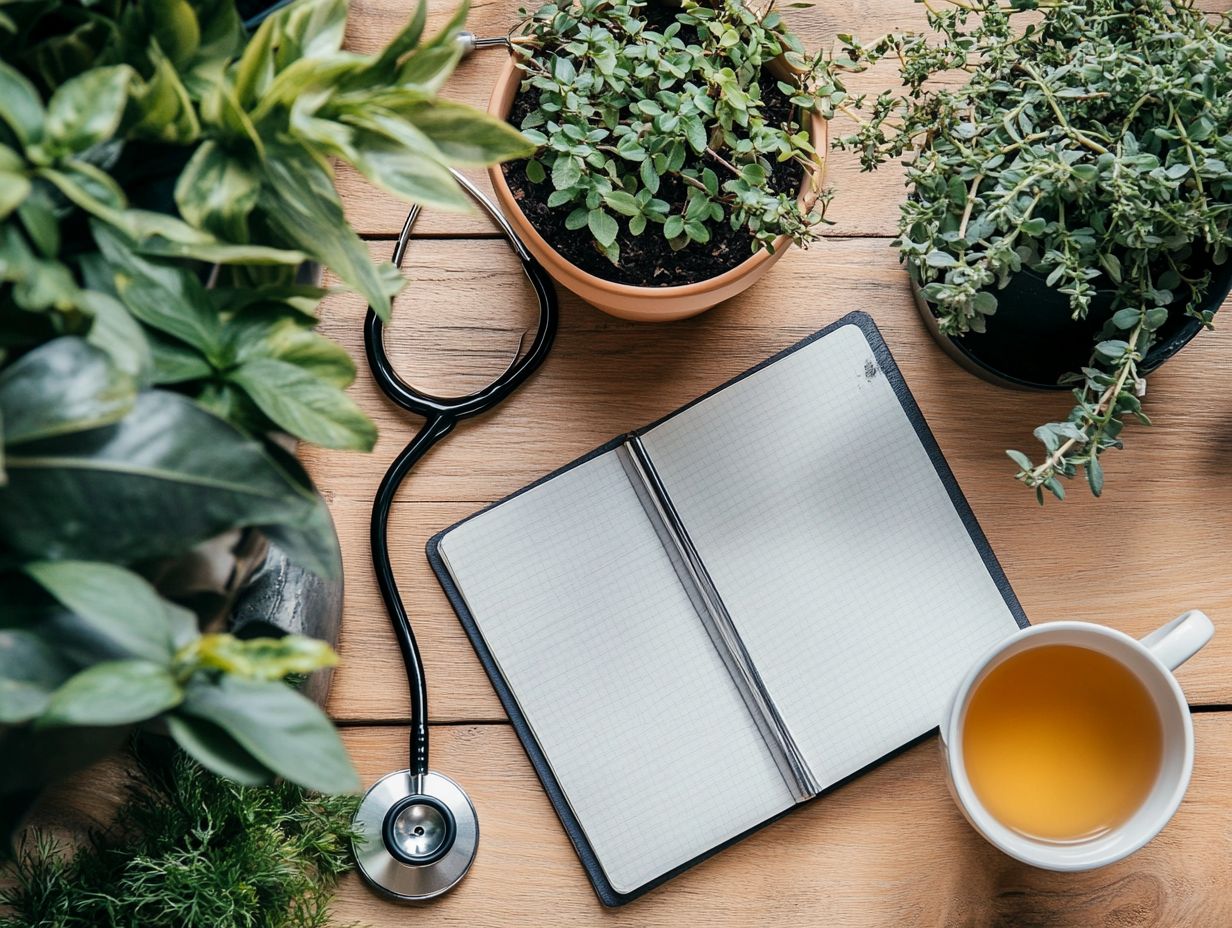
Individual differences like your genetic makeup, existing health conditions, and lifestyle choices can significantly affect the right dosage of herbal supplements. This is essential for ensuring both your safety and the effectiveness of the treatment.
If you have liver conditions, exercise caution with supplements like milk thistle; your liver metabolism can impact how your body processes these compounds. If you re on blood thinners, be careful with ginkgo biloba, as it may increase bleeding risks.
Factors like age, sex, and any concurrent medications can complicate how you respond to herbal products. Understanding these nuances is vital for healthcare providers to prioritize your safety while still harnessing the potential benefits of herbal remedies. Knowing how to measure herbal dosages accurately is also essential in this process.
Finding the Right Dosage for You
Finding the perfect dosage for herbal supplements often requires a thoughtful process of experimentation. You ll need to adjust based on your unique responses, the quality of the supplements, and your commitment to adhering to rigorous product testing standards.
Experimentation and Adjustments
Experimentation and fine-tuning of herbal dosages are essential for maximizing the health benefits of herbal supplements while ensuring they fit within dietary guidelines.
To start this process responsibly, monitor any changes in your health over time. Keep a journal of your symptoms and welfare to see how herbal doses affect you. For instance, when using popular herbal supplements like ginkgo biloba, begin with a lower dosage and gradually increase it to potentially enhance cognitive function without causing side effects. For more detailed guidance, refer to understanding herbal dosage.
If you re trying St. John s wort, consult a healthcare provider to tailor your dosage based on your health needs and to consider possible interactions with medications. This ensures a safe and informed approach to your herbal journey.
Frequently Asked Questions
What is the importance of consulting a professional for herbal dosage?
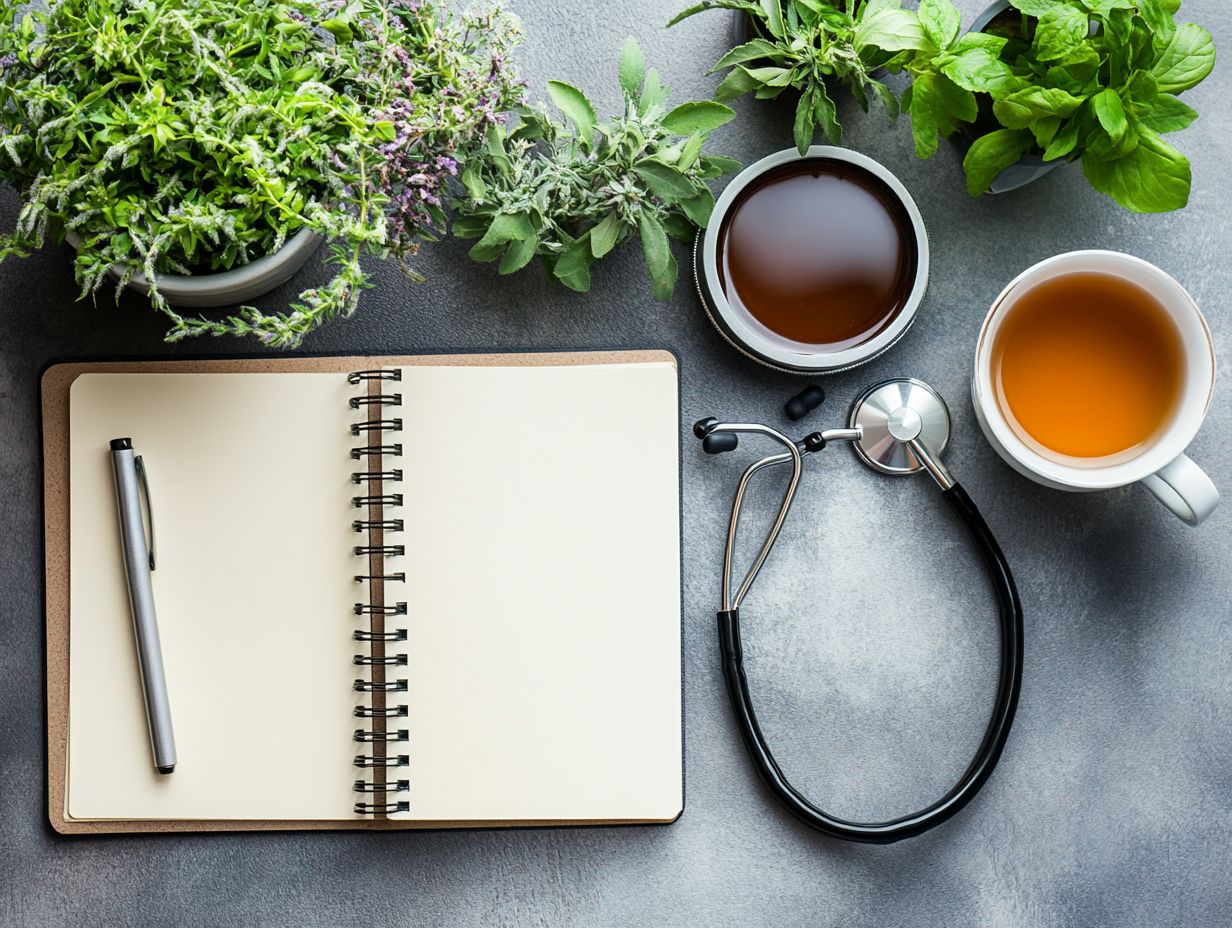
Consult a professional for herbal dosage to get personalized advice based on your health needs and to determine the right dosage for your specific condition.
When should I consult a professional for herbal dosage?
Consult a professional if you are pregnant, breastfeeding, have a pre-existing medical condition, or are taking prescription medications.
What are the risks of not consulting a professional for herbal dosage?
Not consulting a professional can lead to incorrect dosing, adverse reactions, and potential interactions with medications or health conditions.
How can a professional determine the right herbal dosage for me?
A professional will consider your medical history, current medications, and individual health needs to find the appropriate dosage of herbal remedies.
What types of professionals should I consult for herbal dosage?
Consult a certified herbalist, naturopathic doctor, or a licensed healthcare provider, such as a doctor or pharmacist, for guidance on herbal dosage.
What are some potential dangers of self-medicating with herbal remedies?
Self-medicating with herbal remedies can be dangerous, as you may not be aware of potential interactions with medications or health conditions. Incorrect dosing can lead to adverse effects on your health.

